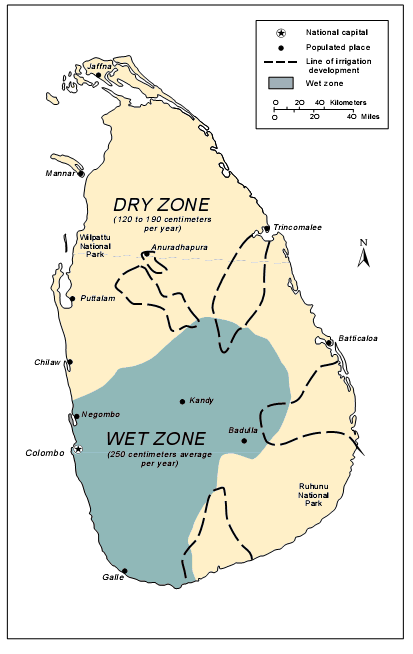Ilankai Tamil Sangam30th Year on the Web Association of Tamils of Sri Lanka in the USA |
||||
 Home Home Archives Archives |
Sixty Years to Flop and Disintegrateby Sachi Sri Kantha, February 8, 2008
Quite a few of the essays and commentaries by the Colombo pundits that I have read in recent days on the 60 years of Sri Lankan independence seem to be filled with self-serving banality and politically correct homilies. A typical example is the following excerpt from the Feb.4th editorial of the Colombo Daily Mirror, under the caption ‘Forging Unity is the Need of the Hour’.
Just make a note that specifics have been diligently omitted in this passage. ‘Why’ the failure persists has been deftly left out, other than that usual suspect “lack of unity among different communities.” Mention is also made to “indigenous leaders.” Let one be clear on this issue alone. All the so-called indigenous political leaders who held the top dog rank for the past 60 years have been Sinhalese. Not a single Tamil, Muslim, Burgher and Veddah has served as either the prime minister or the president. For the first 30 years (1948-77), there were six prime ministers, namely Don Stephen Senanayake, Dudley Senanayake, John Lionel Kotelawala, Solomon Dias Bandaranaike, W. Dahanayake and Sirimavo Bandaranaike. Then for the second 30 years (1978-2007), there were five Presidents, namely Junius R. Jayewardene, R. Premadasa, D.B. Wijetunga, Chandrika Kumaratunga and Mahinda Rajapakse. Isn’t it true that these eleven top dogs (all pious born-Sinhalese Buddhists, baptized-Sinhalese Buddhists and converted-Sinhalese Buddhists) were the chief culprits for the current pathetic state of Sri Lanka? Even among these eleven, the two who had short tenures (Dahanayake and Wijetunga, the accidental top dogs due to assassinations of their predecessors, and who were not elected for the top dog rank) can be reasonably excused for their marginal contributions in policy making. But the rest of the nine deserve condemnation.
Bradman Weerakoon (the Sinhalese bureaucrat who has had the distinction of serving all the ruling top dogs, except the current one), in a companion retrospective piece entitled, “Challenges at 60” [Colombo Daily Mirror, Feb.4, 2008], amiably attempts to cover the butts of the Lords and Ladies he served. Weerakoon states that, as an 18 year-old youth, he was there at the Independence Day celebration when - chornonologically - the fourth top dog, Solomon Dias Bandaranaike – then the Leader of the House (nominally 2nd in rank in the power totem pole) – pronounced that,
According to Weerakoon’s evaluation, after 60 years, the score sheet reads as follows:
I, for one, would infer that Weerakoon’s score sheet – especially on the first two themes – fail stand up to objective scrutiny. Weerakoon has merely adjusted his calibration scales. I’d state that even all the 11 ruling top dogs of the island and their coterie were/are not at all free from ignorance. They were also not immune from the endemic disease of ethnic bias. More than 75 years ago, Bertrand Russell contributed a delightful mini-essay under the caption ‘On Modern Uncertainty.’ What he sarcastically traced as the world’s history is perfectly applicable to independent Ceylon (Sri Lanka)'s history as well. He categorized the historical periods into four stages, and noted that currently we are in the fourth stage. I reproduce the relevant excerpt of this essay, to explain why the paradise island came to flop and disintegrate. To quote Bertrand Russell,
In another essay entitled, ‘As Others See Us’, Bertrand Russell also anticipated the intellectual deficits of political leaders who happen to thrive in Sri Lanka. To quote, “After people leave school their knowledge of foreign countries, such as it is, is derived from the newspapers, and they will not buy a newspaper unless it flatters their prejudices. Consequently, the only knowledge they obtain is such as to confirm their preconceptions and passions.” [ibid, p. 75] Though Sinhalese pride themselves naively as practitioners of democracy, the prevailing Sri Lankan version is a perverted form of democracy. Blood links are pathologically prominent among the nine top dogs who ruined the Sri Lankan state. One family line (Senanayakes) consisted of father-son-uncle-cousin. The other family line (Bandaranaikes) consisted of husband-wife-daughter. Of course, both lines were cross-linked by marriages of convenience. And this contributed its share immensely to the elevation of snobbery into an art form. One of the ranking exponents of this art form is Anura Bandaranaike (the son and brother of three top dogs), who seems to have lost his footing on the power pedestal – but still harbors the ambition of being crowned the top dog. Again, Bertrand Russell anticipated how a state can be ruined by snobbery. To quote,
So, if Sri Lanka has to welcome a brighter future than what it has experienced for the past 60 years, Bertrand Russell’s thoughts (anticipated when Ceylon was a British colony) have to be taken seriously. Three of his thoughts would suffice for a good beginning. Prevent stupid politicians from gaining power to rule. Eliminate snobbery. Give intrinsic merit a chance. I can assure that, I won’t see this happen in my lifetime. ***** |
|||
|
||||
